223 start with W start with W
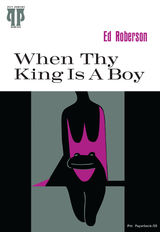

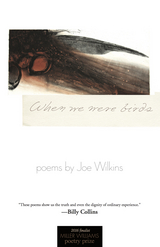
Finalist, 2016 Miller Williams Poetry Prize, edited by Billy Collins
In When We Were Birds, Joe Wilkins wrests his attention away from the griefs, deprivations, and high prairies of his Montana childhood and turns toward “the bean-rusted fields & gutted factories of the Midwest,” toward ordinary injustice and everyday sadness, toward the imminent birth of his son and his own confusions in taking up the mantle of fatherhood, toward faith and grace, legacy and luck.
A panoply of voices are at play—the escaped convict, the late-night convenience store clerk, and the drowned child all have their say—and as this motley chorus rises and crests, we begin to understand something of what binds us and makes us human: while the world invariably breaks all our hearts, Wilkins insists that is the very “place / hope lives, in the breaking.”
Within a notable range of form, concern, and voice, the poems here never fail to sing. Whether praiseful or interrogating, When We Were Birds is a book of flight, light, and song. “When we were birds,” Wilkins begins, “we veered & wheeled, we flapped & looped— / it’s true, we flew.”
Winner, 2017 Stafford/Hall Award for Poetry, Oregon Book Awards
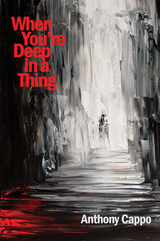
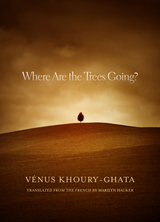
Longlist finalist, 2015 PEN Award for Poetry in Translation
Bringing the work of acclaimed poet Venus Khoury-Ghata to a new generation of anglophone readers, renowned award-winning poet and translator Marilyn Hacker has rendered Khoury-Gata's highly praised collection Où vont les arbres? into unforgettable English verse. In it, Khoury-Ghata takes on perennial themes of womanhood, immigration, and cultural conflict. Characters take root in her memory as weathered trees and garden plants, lending grit and body to the imaginative collection. As bracing as the turn of seasons, Where Are the Trees Going? highlights a poet writing with renewed urgency and maturity.
Khoury-Ghata's collection has been translated into fifteen languages. In this special edition, Paris-resident Hacker has also included selections from Khoury-Ghata's short fiction collection La maison aux orties (The House of Nettles). The resulting interplay illuminates the poet’s contrasting and complementary drives toward surreal lyricism and stark narrative exposition.
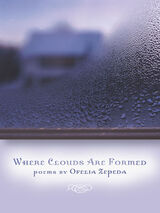
Zepeda is as clear-eyed about the past as she is about the present. She recalls waiting for the school bus on a cold morning inside her father’s truck, listening to the sounds of the engine, the windshield wipers, and the “soft rain on the hood.” She remembers celebrating Mass on the “cold dirt floor of the Winter Solstice.” In the present, she sees both the frustration and the humor in a woman she observes trying to eat pancakes with one hand while her other resides in a cast: “Watching her, I realize eating pancakes is a two-handed job.”
Whatever she sees, she filters through her second set of eyes, which keep the past always present. She tells of traveling to Waw Giwulig, the most sacred mountain of the Tohono O’odham, to ask for blessings—and forgiveness. She writes that one should always bring music to the mountains, “so they are generous with the summer rains.” And, still, “the scent of burning wood / holds the strongest memory. / Mesquite, cedar, piñon, juniper, . . . / we catch the scent of burning wood; / we are brought home.” It is a joy to see the world afresh through her eyes.
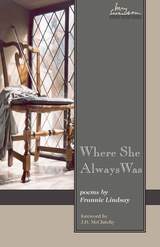
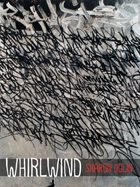
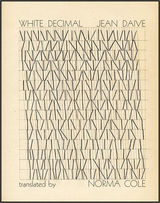
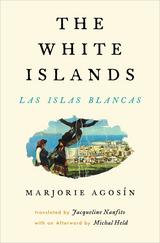
Presented in a beautiful bilingual Spanish-English edition, Agosín’s poems speak to a wandering life of exile on distant shores. We hear the rhythm of the waves and the Ladino-inflected voices of Sephardi women past and present: Paloma, Estrella, and Luna in the fullness of their lives, loves, dreams, and faith. An evocative and sensual voyage to communities mostly lost after the Holocaust, The White Islands offers a lighthouse of remembrance, a lyrical world recovered with language and song, lament and joy, longing and hope.

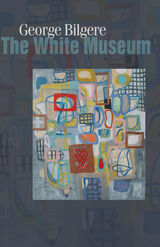
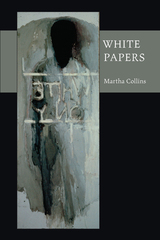
White Papers is a series of untitled poems that deal with issues of race from a number of personal, historical, and cultural perspectives. Expanding the territory of her 2006 book Blue Front, which focused on a lynching her father witnessed as a child, this book turns, among other things, to Martha Collins' childhood. Throughout, it explores questions about what it means to be white, not only in the poet’s life, but also in our culture and history, even our pre-history. The styles and forms are varied, as are the approaches; some of the poems address race only implicitly, and the book, like Blue Front, includes some documentary and “found” material. But the focus is always on getting at what it has meant and what it means to be white—to have a race and racial history, much of which one would prefer to forget, if one is white, but all of which is essential to remember and to acknowledge in a multi-racial society that continues to live under the influence of its deeply racist past.
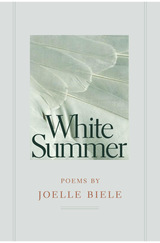
In White Summer, Joelle Biele investigates the problems of personal and cultural memory. Rich with images of flight and displacement, Biele’s poems show a love for words, their music and physicality. In lyric addresses, historical meditations, and autobiographical narratives, she takes readers on a journey that includes stops at a dinner party in ancient Rome, a market square in Germany, an Italian feast in the Bronx, and the main concourse of Manhattan’s Grand Central Station. She shows a sharp eye for the telling detail whether she is studying the migrations of birds or sketching portraits of people wishing to escape the confines of their lives. Throughout her first collection, Biele reveals and revels in the power of language to shape and create experience.
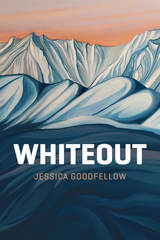
Although her poems begin with a missing body, they are not an elegy. Instead, Goodfellow struggles with the absence of cultural ritual for the uncontainable loss of a beloved one whose body is never recovered and whose final story is unknowable. There is no solace here, no possible reconciliation. Instead, Whiteout is a defiant gaze into a storm that engulfs both the wildness of Alaska and of familial mourning.
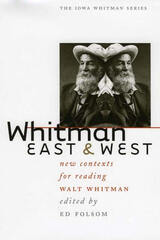
Confirming the growing international spirit of American studies, the essays in Whitman East and West developed out of a landmark conference in Beijing, the first major conference in China to focus on an American poet. Scholars from Asia, Europe, and North America set out to track the ways in which Whitman's poetry has become part of China's cultural landscape as well as the literary landscapes of other countries. By describing his assimilation into other cultures and his resulting transformation into a hybrid poet, these essayists celebrate Whitman's multiple manifestations in other languages and contexts.
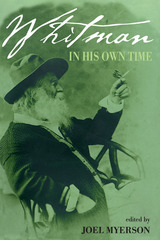
Few American writers were as concerned with their public image as was Walt Whitman. He praised his own work in unsigned reviews; he included engravings or photographs of himself in numerous editions of his work; and he assisted in the writing of two biographies of himself. Whitman was also written about extensively by others throughout his lifetime. Whitman in His Own Time is a collection of these contemporary accounts of the "good gray poet."
The interviews with and recollections of Whitman collected by Joel Myerson represent a wide spectrum of accounts—visitors from America and abroad; newspaper interviewers; Whitman's doctor and nurse during his final illness; his literary executors; a student from his early schoolteaching days; and such well-known authors as Bronson Alcott, John Burroughs, and Henry David Thoreau. The selections also paint a well-rounded picture of Whitman, from his early days as a schoolteacher to the moment of his death, and demonstrate a varying range of attitudes toward the poet. Yet throughout the entire collection, Whitman himself holds center stage, and he is seen as vividly today as he was over one hundred years ago. Myerson's introduction to this expanded edition places these accounts of Whitman within the context of the time and discusses new scholarship on Whitman's life.
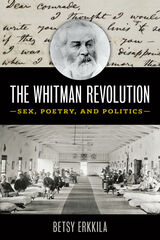
The Whitman Revolution brings together a rich collection of Betsy Erkkila’s phenomenally influential essays that have been published over the years, along with two powerful new essays. Erkkila offers a moving account of the inseparable mix of the spiritual-sexual-political in Whitman and the absolute centrality of male-male connection to his work and thinking. Her work has been at the forefront of scholarship positing that Whitman’s songs are songs not only of workers and occupations but of sex and the body, homoeroticism, and liberation. What is more, Erkkila’s writing demonstrates that this sexuality and communal impulse is central to Whitman’s revolutionary poetry and his conception of democracy itself—an insight that was all but suppressed during the mid-twentieth century emergence of American literature as a field of study.
Highlights of this collection include Erkkila’s essays on pairings such as Marx and Whitman, Dickinson and Whitman, and Melville and Whitman. Across the volume, she demonstrates an international vision that highlights the place of Leaves of Grass within a global struggle for democracy. The Whitman Revolution is evidence of Erkkila’s remarkable ability to lead critical discussions, and marks an exciting event in Whitman studies.
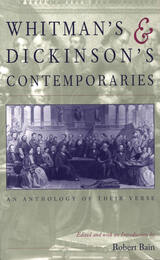
Emily Dickinson and Walt Whitman were not the poetic stars of their day; only a few friends knew that Dickinson wrote, and Whitman’s following was minuscule, if influential. But the contemporaries who eclipsed these major poets now have largely disappeared from our literary landscape.
In this distinctive anthology, Robert Bain gathers together thirteen other scholars to re-present the poetry of these former luminaries, allowing readers to rediscover them, reconstruct the poetic contexts of their age, and better understand why Whitman and Dickinson now overshadow other poets of their time.
Arranged chronologically according to the birth dates of the poets, this anthology introduces each poet’s work, providing biographical information and discussing the major forms and themes of the work. Each introduction places the poet in a literary and historical context with Whitman and Dickinson and provides a bibliography of secondary sources.
This remarkable book recovers a part of our literary heritage that has been lost.

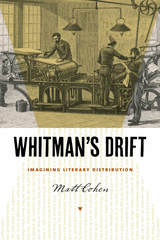
Still, as the budding poet learned, books neither sell themselves nor move themselves: without an efficient set of connections to get books to readers, the democratic media-saturated future Whitman imagined would have remained warehoused. Whitman’s works sometimes ran through the “many-cylinder’d steam printing press” and were carried in bulk on “the strong and quick locomotive.” Yet during his career, his publications did not follow a progressive path toward mass production and distribution. Even at the end of his life, in the 1890s as his fame was growing, the poet was selling copies of his latest works by hand to visitors at his small house in Camden, New Jersey. Mass media and centralization were only one part of the rich media world that Whitman embraced.
Whitman’s Drift asks how the many options for distributing books and newspapers shaped the way writers wrote and readers read. Writers like Whitman spoke to the imagination inspired by media transformations by calling attention to connectedness, to how literature not only moves us emotionally, but moves around in the world among people and places. Studying that literature and how it circulated can help us understand not just how to read Whitman’s works and times, but how to understand what is happening to our imaginations now, in the midst of the twenty-first century media explosion.

Oedipus’s major handicap in life is not knowing who he is—and both parricide and incest result from his ignorance of his identity. With two questions—“Who am I?” and “Who is my father?”—on his mind (and on his lips), the obsessed Oedipus arrives at the oracle of Delphi.
Unlike the majority of modern and postmodern readings of Oedipus Tyrannus, Efimia Karakantza’s text focuses on the question of identity. Identity, however, is not found only in our genealogy; it also encompasses the ways we move in the public space, command respect or fail to do so, and relate to our interlocutors in life. But overwhelmingly, in the Greek polis, one’s primary identity is as a citizen, and defining the self in the polis is the kernel of this story.
Surveying a wide range of postmodern critical theories, Karakantza follows the steps of the protagonist in the four “cycles of questions” constructed by Sophocles. The quest to piece together Oedipus’s identity is the long, painful, and intricate procedure of recasting his life into a new narrative.
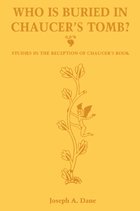
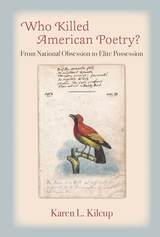
Conceptually and methodologically unique among studies of 19th-century American poetry, Who Killed American Poetry? not only charts changing attitudes toward American poetry, but also applies these ideas to the work of representative individual poets. Closely analyzing hundreds of reviews and critical essays, Karen L. Kilcup tracks the century’s developing aesthetic standards and highlights the different criteria reviewers used to assess poetry based on poets’ class, gender, ethnicity, and location. She shows that, as early as the 1820s, critics began to marginalize some kinds of emotional American poetry, a shift many scholars have attributed primarily to the late-century emergence of affectively restrained modernist ideals. Mapping this literary critical history enables us to more readily apprehend poetry’s status in American culture—both in the past and present—and encourages us to scrutinize the standards of academic criticism that underwrite contemporary aesthetics and continue to constrain poetry’s appeal.
Who American Killed Poetry? enlarges our understanding of American culture over the past two hundred years and will interest scholars in literary studies, historical poetics, American studies, gender studies, canon criticism, genre studies, the history of criticism, and affect studies. It will also appeal to poetry readers and those who enjoy reading about American cultural history.
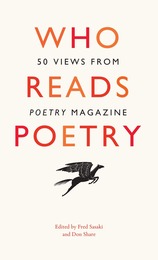
In one essay, musician Neko Case calls poetry “a delicate, pretty lady with a candy exoskeleton on the outside of her crepe-paper dress.” In another, anthropologist Helen Fisher turns to poetry while researching the effects of love on the brain, “As other anthropologists have studied fossils, arrowheads, or pot shards to understand human thought, I studied poetry. . . . I wasn’t disappointed: everywhere poets have described the emotional fallout produced by the brain’s eruptions.” Even film critic Roger Ebert memorized the poetry of e. e. cummings, and the rapper Rhymefest attests here to the self-actualizing power of poems: “Words can create worlds, and I’ve discovered that poetry can not only be read but also lived out. My life is a poem.” Music critic Alex Ross tells us that he keeps a paperback of The Palm at the End of the Mind by Wallace Stevens on his desk next to other, more utilitarian books like a German dictionary, a King James Bible, and a Macintosh troubleshooting manual.
Who Reads Poetry offers a truly unique and broad selection of perspectives and reflections, proving that poetry can be read by everyone. No matter what you’re seeking, you can find it within the lines of a poem.
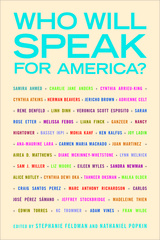
The editors and contributors to Who Will Speak for America? are passionate and justifiably angry voices providing a literary response to today’s political crisis. Inspired by and drawing from the work of writers who participated in nationwide Writers Resist events in January 2017, this volume provides a collection of poems, stories, essays, and cartoons that wrestle with the meaning of America and American identity. The contributions—from established figures including Eileen Myles, Melissa Febos, Jericho Brown, and Madeleine Thien, as well as rising new voices, such as Carmen Maria Machado, Ganzeer, and Liana Finck—confront a country beset by racial injustice, poverty, misogyny, and violence.
Contributions reflect on the terror of the first days after the 2016 Presidential election, but range well beyond it to interrogate the past and imagine possible American futures.
Who Will Speak for America? inspires readers by emphasizing the power of patience, organizing, resilience and community. These moving works advance the conversation the American colonists began, and that generations of activists, in their efforts to perfect our union, have elevated and amplified.
All royalties will benefit the Southern Poverty Law Center.
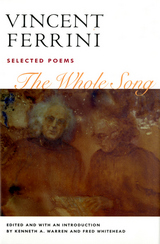
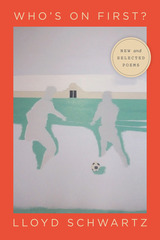
For more than four decades, readers and critics have found Lloyd Schwartz’s poems unlike anyone else’s—a rare combination of the heartbreaking and the hilarious. With his ear for the poetry of the vernacular, Schwartz offers us a memorable cast of characters—both real and imagined, foolish and oracular. Readers experience his mother’s piercing flashes of memory, the perverse comic wisdom of Gracie Allen, the uninhibited yet loving exhibitionists of antique pornography, and eager travelers crossing America in a club-car or waiting in a Brazilian airport. Schwartz listens to these people without judging—understanding that they are all trying to live their lives, whenever possible, with tenderness, humor, and grace.
Who’s on First? brings together a selection of poems from all of Schwartz’s previous collections along with eagerly awaited new poems, highlighting his formal inventiveness in tangling and untangling the yarn of comedy and pathos. Underlying all of these poems is the question of what it takes and what it costs to make art.

The poetry in Elizabeth Scanlon’s Whosoever Whole asks how we arrive at and nurture a sense of self amid a culture that wants us only to consume. Navigating the fractal and often fractured experiences of a citizen, a parent in the time of climate change, and a woman in an embattled era, Scanlon invites the reader into an interior space filled with anger, joy, wonder, and hope. Employing metaphor and metonymy, these poems portray a series of courageous portraits of the many faces a woman must wear to survive in today’s culture. Whosoever Whole is an anti-capitalist love song to all who refuse to be torn apart by the market valuation of their lives.
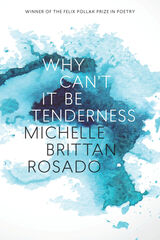
bring me back
to the in-between
where my breath
has always lived,
without containment,
like two legs pointing
toward the ocean, or these arms
reaching into sky
—excerpt from "Ode to the Double 'L'" Michelle Brittan Rosado. All rights reserved.
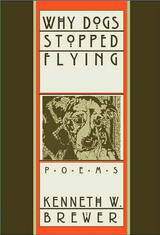
self-ironic. Yet, in this collection perhaps more than his earlier work, the particularity of the poet’s insight into the physical world and the warmth of his affection for it combine
to create an unexpected transcendence. Beasts and bodies are transformed in his lines, and our dim, unremarkable lives on this shadowed earth become somehow more
luminous—small words to the moon, small suns opening in the dark.
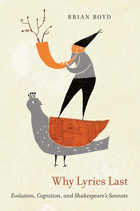
In Why Lyrics Last, the internationally acclaimed critic Brian Boyd turns an evolutionary lens on the subject of lyric verse. He finds that lyric making, though it presents no advantages for the species in terms of survival and reproduction, is “universal across cultures because it fits constraints of the human mind.” An evolutionary perspective— especially when coupled with insights from aesthetics and literary history—has much to tell us about both verse and the lyrical impulse.
Boyd places the writing of lyrical verse within the human disposition “to play with pattern,” and in an extended example he uncovers the many patterns to be found within Shakespeare’s Sonnets. Shakespeare’s bid for readership is unlike that of any sonneteer before him: he deliberately avoids all narrative, choosing to maximize the openness of the lyric and demonstrating the power that verse can have when liberated of story.
In eschewing narrative, Shakespeare plays freely with patterns of other kinds: words, images, sounds, structures; emotions and moods; argument and analogy; and natural rhythms, in daily, seasonal, and life cycles. In the originality of his stratagems, and in their sheer number and variety, both within and between sonnets, Shakespeare outdoes all competitors. A reading of the Sonnets informed by evolution is primed to attend to these complexities and better able to appreciate Shakespeare’s remarkable gambit for immortal fame.

— from the Judge’s Citation by Kimiko Hahn
Why Misread a Cloud takes its name from clouds of ash and smoke in wartime which appear to the author as a “storm, blown over the sea.” Both an exploration of the mind’s ability to turn what is into something else, in order to survive, and the mind’s ability to resist the effects of psychosocial warfare—imposed by the military and the police. “Who wants you to be afraid” the poet’s friend asks as he “added sugar to his tea.” The realization this question brings enables the poet to explore forces that separate us from one another and ways we rise up within ourselves to move through fear toward love.

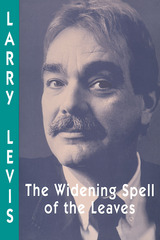

In Wild Delicate Seconds, Charles Finn captures twenty-nine chance encounters with the everyday—and not so everyday—animals, birds, and insects of North America.
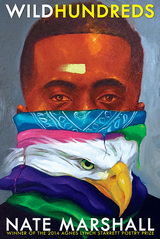
Winner, 2016 BCALA Literary Award (poetry category)
Winner of the 2014 Agnes Lynch Starrett Poetry Prize
Finalist, 2015 NAACP Image Awards (poetry category)
Wild Hundreds is a long love song to Chicago. The book celebrates the people, culture, and places often left out of the civic discourse and the travel guides. Wild Hundreds is a book that displays the beauty of black survival and mourns the tragedy of black death.
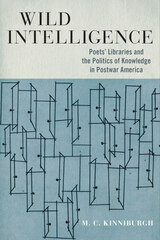
Information science was a burgeoning field in the early years of the Cold War, and while public and academic libraries acted as significant sites for the information boom, it is unsurprising that McCarthyism and censorship would shape what they granted readers access to and acquired. Wild Intelligence traces a different history of information management, examining the privately assembled collections of poets and their knowledge-building practices at midcentury.
Taking up case studies of four poets who began writing during the 1950s and 1960s, including Charles Olson (1910–1970), Diane di Prima (1934–2020), Gerrit Lansing (1928–2018), and Audre Lorde (1934–1992), M. C. Kinniburgh shows that the postwar American poet’s library should not just be understood according to individual books within their collection but rather as an archival resource that reveals how poets managed knowledge in a growing era of information overload. Exploring traditions and systems that had been overlooked, buried, occulted, or censored, these poets sought to recover a sense of history and chart a way forward.
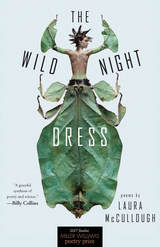
Finalist, 2017 Miller Williams Poetry Prize, edited by Billy Collins
“A graceful synthesis of poetry and science.”
—Billy Collins
Laura McCullough finds passage through the darkest times as she loses, in short order, her mother and her marriage. Through her near unbearable grief, she creates poems that slip between science and nature as she grasps at coordinates in a world spun out of its orbit. From the God Particle to toroidal vortexes, from the slippery linguistics of translation to the translation of the body, McCullough brings readers to the mystery of surrender, and the paradox that what we bear can make us more beautiful, that there is a gift in grief.

In the 1930s, Milman Parry and Albert B. Lord, two pioneering scholars of oral poetry, conducted adventurous fieldwork in the Kingdom of Yugoslavia and northern Albania, collecting singularly important examples of Albanian epic song. Wild Songs, Sweet Songs presents these materials, which have not previously been published, for the first time.
Nicola Scaldaferri and his collaborators provide a complete catalogue of the Albanian texts and recordings collected by Parry and Lord; a selection of twelve of the most significant texts, including the longest Albanian epic ever collected, in Albanian with accompanying English translations; four essays contextualizing the materials and outlining their significance; and an assortment of related photographs and documents. The book is an authoritative guide to one of the most significant collections of Balkan folk epic in existence.
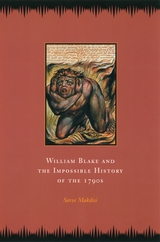
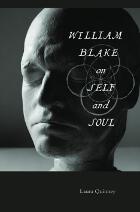

William Collins and Eighteenth-Century English Poetry was first published in 1981. Minnesota Archive Editions uses digital technology to make long-unavailable books once again accessible, and are published unaltered from the original University of Minnesota Press editions.
William Collins (1721–1759) is one of several eighteenth-century poets who have received more attention for what they are said to have anticipated—the full-blooded Romanticism of Wordsworth and Coleridge—than for what they have achieved. Collins's career as a poet was brief, but the handful of major poems that he wrote in the mid -1740s has stirred interest among critics intrigued by the complexity and obscurity of his work and by the illness and possible madness that prematurely ended his life. Combining historical scholarship with close readings of all Collins's poems, Richard Wendorf provides the most comprehensive and detailed study to be devoted to the work of this enigmatic figure and to the forces that shaped his literary career. In doing so, he places Collins within an eighteenth-century poetic context and shows that his gift for myth-making makes him a vital link between the mythic poetry of Shakespeare and Spenser and that of the Romantics.
Wendorf's opening and closing chapters examine the relationship between Collins's life and his work, providing an authoritative discussion of his supposed madness and of the myths of insanity that clouded his reputation in the eighteenth and nineteenth centuries. Wendorf argues that Collins's madness is problematical at best, and that much recent criticism is a distortion of his major work, which explores the transcendent powers of the irrational forces within us but is not necessarily the product of madness itself. The book's central chapters trace Collins's development as a poet and offer fresh approaches to his major odes. In these mature poems he turned from his early interest in Augustan poetry to very different sources of inspiration and came to reject the ordered and unified natural world of Pope and Thompson.
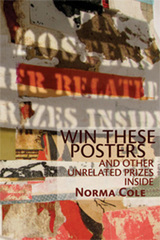
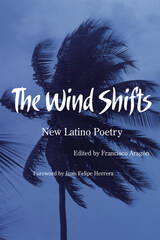
Certainly there is poetry here that is political, but this is not a polemical book; it is a poetry book. While conscious of their roots, the artists are equally conscious of living in the contemporary world—fully engaged with the possibilities of subject and language. The variety is tantalizing. There are sonnets and a sestina; poems about traveling and living overseas; poems rooted in the natural world and poems embedded in suburbia; poems nourished by life on the U.S.–Mexico border and poems electrified by living in Chicago or Los Angeles or San Francisco or New York City.
Some of the poetry is traditional; some is avant-garde; some is informed by traditional poetry in Spanish; some follows English forms that are hundreds of years old. There are love poems, spells that defy logic, flashes of hope, and moments of loss. In short, this is the rich and varied poetry of young, talented North American Latinos and Latinas.
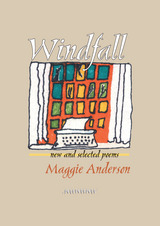

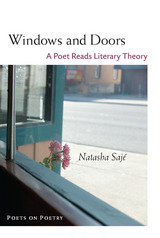
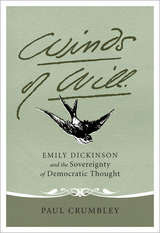
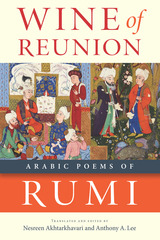
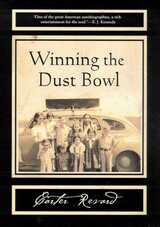
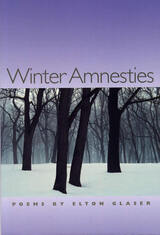
Winter Amnesties is a book of origins and endings, griefs and reconciliations. Each poem addresses the dilemma posed by G. K. Chesterton: “One must somehow find a way of loving the world without trusting it.” The poems revisit the past, assess the present, and stare hard into the future. At middle age, Glaser remembers his youth in Louisiana and settles into the long stretch of his adult years in Ohio; he makes his peace with “the life that allows.” As son, as father, as poet, he looks to his legacy, whatever dim remnant of himself might continue after “all flesh falls back to salt and cinder.”
But these are poems of brio and bitter wit, not of self-pity and surrender. They take a jaunty stance towards life and welcome whatever the days may bring, confident that, like crows in the harvest cornfield, we can live on “the shocks and waste of this world” and “wring gold grain from the ruin.”
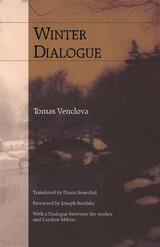
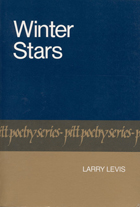

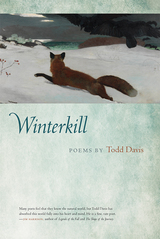
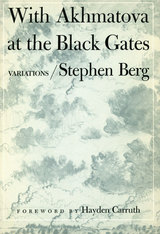
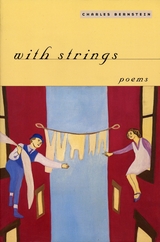
Charles Bernstein is perhaps best known as one of the founders of the L=A=N=G=U=A=G=E poetry movement of the 1970s. He remains one of America's liveliest advocates and practitioners of radically inventive poetry. The title of his new collection, With Strings, suggests the lush arrangement of a musical work as well as the unacknowledged implications of our everyday agreements. Just as language binds us together with its associated meanings, With Strings bounces against the ties that rend us apart as they fasten us together. From his samplings of everyday life, to his demented yet sonorous iambic beats, Bernstein has once again created a poetry of our time, for our time, and by our time.
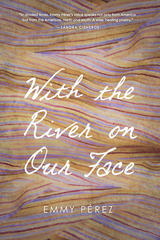
Pérez reveals the strengths and nuances of a universe where no word is “foreign.” Her fast-moving, evocative words illuminate the prayers, gasps, touches, and gritos born of everyday discoveries and events. Multiple forms of reference enrich the poems in the form of mantra: ecologist’s field notes, geopolitical and ecofeminist observations, wildlife catalogs, trivia, and vigil chants.
“What is it to love / within viewing distance of night / vision goggles and guns?” is a question central to many of these poems.
The collection creates a poetic confluence of the personal, political, and global forces affecting border lives. Whether alluding to El Valle as a place where toxins now cross borders more easily than people or wildlife, or to increased militarization, immigrant seizures, and twenty-first-century wall-building, Pérez’s voice is intimate and urgent. She laments, “We cannot tattoo roses / On the wall / Can’t tattoo Gloria Anzaldúa’s roses / On the wall”; yet, she also reaffirms Anzaldúa’s notions of hope through resilience and conocimiento.
With the River on Our Face drips deep like water, turning into amistad—an inquisition into human relationships with planet and self.
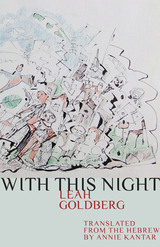
When she arrived in Palestine in 1935 at the age of twenty-four, Leah Goldberg was already known as a significant emerging poet in contemporary Hebrew literature. Today, mention of her name is apt to evoke a nostalgic sigh among Israelis who have grown up hearing her poems read, quoted, recollected, and—having been set to some four hundred melodies—sung on the radio. In the wake of overwhelming new attention on Goldberg's work in Israel, With This Night makes available for the first time in English the final collection of poetry that Goldberg published during her lifetime.
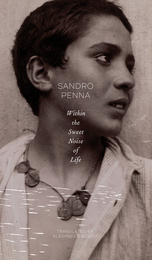
Juggling traditional Italian prosody and subject matter with their gritty urban opposites in taut, highly concentrated poems, Penna’s lyrics revel in love and the eruption of Eros together with the extraordinary that can be found within simple everyday life. There is something ancient in Penna’s poetry, and something Etruscan or Greek about the poems, though the landscape is most often of Rome: sensual yet severe, sinuous yet solid, inscrutable, intangible, and languorous, with a Sphinx-like and sun-soaked smile. Penna’s city is eternal—a mythically decadent Rome that brings to mind Paris or Alexandria. And though the echoes resound—from Rimbaud, Verlaine, and Baudelaire to Leopardi, D’Annunzio, and Cavafy—the voice is always undeniably and wonderfully Penna’s own.
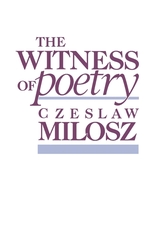
Czeslaw Milosz, winner of the 1980 Nobel Prize for Literature, reflects upon poetry’s testimony to the events of our tumultuous time. From the special perspectives of “my corner of Europe,” a classical and Catholic education, a serious encounter with Marxism, and a life marked by journeys and exiles, Milosz has developed a sensibility at once warm and detached, flooded with specific memory yet never hermetic or provincial.
Milosz addresses many of the major problems of contemporary poetry, beginning with the pessimism and negativism prompted by reductionist interpretations of man’s animal origins. He examines the tendency of poets since Mallarmé to isolate themselves from society, and stresses the need for the poet to make himself part of the great human family. One chapter is devoted to the tension between classicism and realism; Milosz believes poetry should be “a passionate pursuit of the real.” In “Ruins and Poetry” he looks at poems constructed from the wreckage of a civilization, specifically that of Poland after the horrors of World War II. Finally, he expresses optimism for the world, based on a hoped-for better understanding of the lessons of modern science, on the emerging recognition of humanity’s oneness, and on mankind’s growing awareness of its own history.
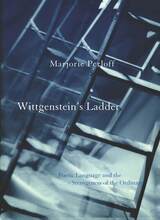
"This book has the lucidity and the intelligence we have come to expect from Marjorie Perloff.—Linda Munk, American Literature
"[Perloff] has brilliantly adapted Wittgenstein's conception of meaning and use to an analysis of contemporary language poetry."—Linda Voris, Boston Review
"Wittgenstein's Ladder offers significant insights into the current state of poetry, literature, and literary study. Perloff emphasizes the vitality of reading and thinking about poetry, and the absolute necessity of pushing against the boundaries that define and limit our worlds."—David Clippinger, Chicago Review
"Majorie Perloff has done more to illuminate our understanding of twentieth century poetic language than perhaps any other critic. . . . Entertaining, witty, and above all highly original."—Willard Bohn, Sub-Stance
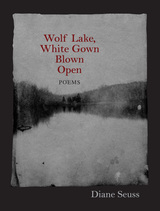
With darkly raucous humor and wrenching pathos, Seuss burrows furiously into liminal places of no dimension— state lines, lakes' edges, the space "between the m and the e in the word amen." From what she calls "this place inbetween" come profane prayers in which "the sound of hope and the sound of suffering" are revealed to be "the same music played on the same instrument."
Midway through this book, a man tells the speaker that beauty is that which has not been touched. This collection is a righteous and fierce counterargument: in the world of this imagination, beauty spills from that which has been crushed, torn, and harrowed. "We receive beauty," Seuss writes, "as a nail receives / the hammer blow." This is the poetry that comes only after the white dress has been blown open—the poetry of necessity, where a wild imagination is the only hope.
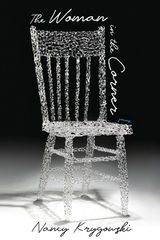
Excerpt from “The Woman in the Corner”
I cut a leaf from my mother’s blooming violet,
long alive past her death, to start a plant
for my daughter who I never knew as a baby—
born to a different woman—
but for whom I explained birth
control, blood, how to relax, push in a tampon,
what my mother never touched, her body
a child-making mystery that pushed me
into mystery. What is a woman
who doesn’t long for kids?

The Roman comic playwright “whose every word delights.”
Terence brought to the Roman stage a bright comic voice and a refined sense of style. His six comedies—first produced in the half dozen years before his premature death in 159 BC—imaginatively reformulated in Latin plays that were originally written by Greek playwrights, especially Menander. For this new Loeb Classical Library edition of Terence, John Barsby gives us a faithful and lively translation with full explanatory notes, facing a freshly edited Latin text.
Volume I contains a substantial introduction and three plays: The Woman of Andros, a romantic comedy; The Self-Tormentor, which looks at contrasting father-son relationships; and The Eunuch, whose characters include the most sympathetically drawn courtesan in Roman comedy. The other three plays are in Volume II: Phormio, a comedy of intrigue with an engaging trickster; The Mother-in-Law, unique among Terence’s plays in that the female characters are the admirable ones; and The Brothers, which explores contrasting approaches to parental education of sons.
The Romans highly praised Terence—“whose speech can charm, whose every word delights,” in Cicero’s words. This new edition of his plays, which replaces the now outdated Loeb translation by John Sargeaunt (first published in 1912), succeeds in capturing his polished style and appeal.
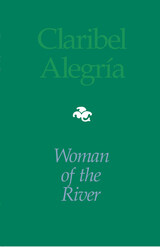
As Carolyn Forche has written of Alegria’s previous selection of poems, Flowers from the Volcano: “These poems are testimonies to the value of a single human memory, political in the sense that there is no life apart from our common destiny. They are poems of passionate witness and confrontation. Responding to those who would state that politics has no place in poetry, she would add her voice to that of Neruda’s: we do not wish to please them . . . .” She carries within her the ancient blood of the Pipiles and laces her language with mesitizo richness.”
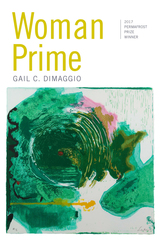
Like many women, the speaker believed that leaving her parent’s home, falling in love, and raising children would reveal the essential core of herself. Instead, she learns that those she loves can fail her and that she must embrace a world full of flickering and conflicting expectations for women. Woman Prime is about every woman and no woman—a mutable voice that will still resonate with anyone trying to reconcile their flawed and complicated selves.
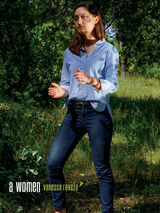
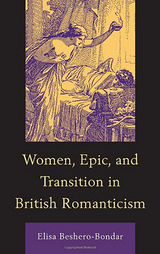
Women, Epic, and Transition in British Romanticism argues that early nineteenth-century women poets contributed some of the most daring work in modernizing the epic genre. The book examines several long poems to provide perspective on women poets working with and against men in related efforts, contributing together to a Romantic movement of large-scale genre revision. Women poets challenged longstanding categorical approaches to gender and nation in the epic tradition, and they raised politically charged questions about women’s importance in moments of historical crisis.
While Romantic epics did not all engage in radical questioning or undermining of authority, this study calls attention to some of the more provocative poems in their approach to gender, culture, and history. This study prioritizes long poems written by and about women during the Romantic era, and does so in context with influential epics by male contemporaries. The book takes its cue from a dramatic increase in the publication of epics in the early nineteenth-century. At their most innovative, Romantic epics provoked questions about the construction of ideological meaning and historical memory, and they centralized women’s experiences in entirely new ways to reflect on defeat, loss, and inevitable transition. For the first time the epic became an attractive genre for ambitious women poets.
The book offers a timely response to recent groundbreaking scholarship on nineteenth-century epic by Herbert Tucker and Simon Dentith, and should be of interest to Romanticists and scholars of 18th- and 19th-century literature and history, gender and genre, and women’s studies.
Published by University of Delaware Press. Distributed worldwide by Rutgers University Press.
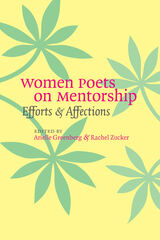
The poets in this collection describe a new kind of influence, one less hierarchical, less patriarchal, and less anxious than forms of mentorship in the past. Vivid and intelligent, these twenty-four essays explore the complicated nature of the mentoring relationship, with all its joys and difficulties, and show how this new sense of writing out of female experience and within a community of writers has fundamentally changed women’s poetry.
Includes:
Jenny Factor on Marilyn Hacker
Beth Ann Fennelly on Denise Duhamel
Miranda Field on Fanny Howe
Katie Ford on Jorie Graham
Joy Katz on Sharon Olds
Valerie Martínez on Joy Harjo
Erika Meitner on Rita Dove
Aimee Nezhukumatathil on Naomi Shihab Nye
Eleni Sikelianos on Alice Notley
Tracy K. Smith on Lucie Brock-Broido
Crystal Williams on Lucille Clifton
Rebecca Wolff on Molly Peacock
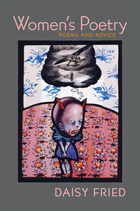
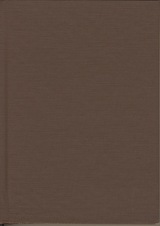
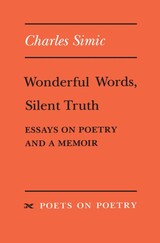

With the ascent of digital culture, new forms of literature and literary production are thriving that include multimedia, networked, conceptual, and other as-yet-unnamed genres while traditional genres and media—the lyric, the novel, the book—have been transformed. Word Toys: Poetry and Technics is an engaging and thought-provoking volume that speculates on a range of poetic, novelistic, and programmed works that lie beyond the language of the literary and which views them instead as technical objects.
Brian Kim Stefans considers the problems that arise when discussing these progressive texts in relation to more traditional print-based poetic texts. He questions the influence of game theory and digital humanities rhetoric on poetic production, and how non-digital works, such as contemporary works of lyric poetry, are influenced by the recent ubiquity of social media, the power of search engines, and the public perceptions of language in a time of nearly universal surveillance.
Word Toys offers new readings of canonical avant-garde writers such as Ezra Pound and Charles Olson, major successors such as Charles Bernstein, Alice Notley, and Wanda Coleman, mixed-genre artists including Caroline Bergvall, Tan Lin, and William Poundstone, and lyric poets such as Harryette Mullen and Ben Lerner. Writers that trouble the poetry/science divide such as Christian Bök, and novelists who have embraced digital technology such as Mark Z. Danielewski and the elusive Toadex Hobogrammathon, anchor reflections on the nature of creativity in a world where authors collaborate, even if unwittingly, with machines and networks. In addition, Stefans names provocative new genres—among them the nearly formless “undigest” and the transpacific “miscegenated script”—arguing by example that interdisciplinary discourse is crucial to the development of scholarship about experimental work.
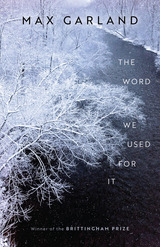
In these poems Max Garland confesses, even revels in, the fabricated nature of memory. He links personal and localized patterns (fingerprints, plowed fields) to the motions animating the insides of atoms and the unfurling of remote galaxies. Back on earth, the poems honor the decidedly homespun quality of grit—how creatures both animal and human bear up in the face of mounting odds against them. Garland suggests that imagination itself requires grit, to be called upon when the more spectacular angels are otherwise occupied.

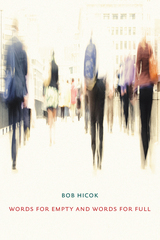
“As always with a Bob Hicok book, fascinating and a book you sort of can’t help but pick up and suddenly, two hours later, find yourself having read straight through. I can think of just about no contemporary poets who publish such consistently great work.” —Corduroy Books
“Bob Hicok's poetry is a fleeting comfort, a temporary solace from the chaos of the world. Smart, honest, powerfully inventive, his writing asks the biggest questions while acknowledging that there are no answers beyond the imposed structure of the page.” —Los Angeles Times on This Clumsy Living
“The most potent ingredient in virtually every one of Bob Hicok's compact, well-turned poems is a laughter as old as humanity itself, a sweet waggery that suggests there's almost no problem that can't be solved by this poet's gentle humor.” —New York Times Book Review on Insomnia Diary
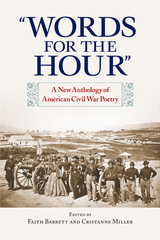
The volume is divided into three parts, each offering a different perspective on the poetry generated by the war. Part I samples the extraordinary range of poems written immediately preceding and during the war and published in popular periodicals, providing a kind of poetic newspaper account as one might have read it then—from the early days of optimistically heralded victory on both sides, through the mounting casualties and brutal deaths of the long middle years, to the war's conclusion and President Lincoln's assassination. Viewing the struggle from many different vantage points gives the reader access to the ways that people from various backgrounds experienced the trajectory of the war. Civilians and soldiers, free blacks and proponents of slavery, women and men from Massachusetts and Virginia and from recently admitted states and barely developed territories, writers with their eyes on the national political stage and those focused on personal domestic issues: these are the multiple voices of America responding to the war.
Part II includes substantial selections of poems by writers who published extensively in response to the conflict, providing more complex and comprehensive perceptions of the war. These poets include not just well-known figures such as Walt Whitman, Herman Melville, and John Greenleaf Whittier, but also African American poets George Moses Horton and Frances Ellen Watkins Harper and Southern poets Henry Timrod and Sarah Piatt.
Part III offers poems by two poets who did not publish during their lifetimes, but had strong imaginative responses to the conflict, thus giving a sense of the long reach of the war as a defining national experience. One of these two poets (Emily Dickinson) is now renowned while the other (Obadiah Ethelbert Baker) is first published in this volume.
"Words for the Hour" is indeed "new" among anthologies of Civil War poetry not only in its wide range of poems by popular, anonymous, and now canonical poets but also in its informational apparatus. A historical timeline listing major battles and events of the war begins the volume, and historical photographs or lithographs introduce each section of poems. The book also includes a substantial introduction, a glossary of important names and terminology relevant to understanding the poems, and biographical sketches for all the poets whose work is included.
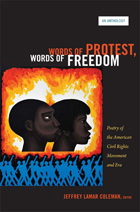
Some of the poems address crucial movement-related events—such as the integration of the Little Rock schools, the murders of Emmett Till and Medgar Evers, the emergence of the Black Panther party, and the race riots of the late 1960s—and key figures, including Martin Luther King Jr., Malcolm X, and John and Robert Kennedy. Other poems speak more broadly to the social and political climate of the times. Along with Jeffrey Lamar Coleman's headnotes, the poems recall the heartbreaking and jubilant moments of a tumultuous era. Altogether, more than 150 poems by approximately 100 poets showcase the breadth of the genre of civil rights poetry.
Selected contributors. Maya Angelou, W. H. Auden, Amiri Baraka, Gwendolyn Brooks, Lucille Clifton Lawrence Ferlinghetti, Allen Ginsberg, Langston Hughes, June Jordan, Philip Levine, Audre Lorde, Robert Lowell, Pauli Murray, Huey P. Newton, Adrienne Rich, Sonia Sanchez, Léopold Sédar Senghor, Derek Walcott, Alice Walker, Yevgeny Yevtushenko
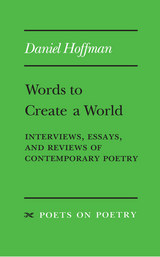
Between these are discussions of books by and about founding modernists (Pound, Moore, Sitwell, Frost, Graves, Auden) who do not “succumb to the imitative fallacy and gibber at the window because the house is on fire.” Hoffman’s historical imagination elucidates the work of many other contemporary American and British poets, including his own. Words to Create a World will appeal to the reader who enjoys poetry and who hopes for guidance over the sprawling terrain of verse in the twentieth century.

Many poems in the Chinese tradition come to us embedded in narratives purporting to tell the circumstances of their composition and performance. "Poetic competence" is demonstrated in these narratives through a person's ability to influence the attitudes and behavior of others with poetic discourse. Such competence can be apprehended only in the context of a narrative, which sets forth a representation of the conditions of a poem's production, performance, and reception. These narratives are not so much faithful historical records as ideal accounts of the operation of poetry. Such stories both fulfill and deny wishes for poetry and for the self; it is these wishes that merit our careful attention.
As traced in Words Well Put, the vision of poetic competence evolved for over a millennium from calculated performances of inherited words to sincere passionate outbursts to displays of verbal wit combining calculation with the appearance of spontaneity. By the seventh century, calculation, passion, and wit had converged to produce a multivalent concept of competence as a repertoire of competencies to use as the occasion demanded. This book tells the story of the development of poetic competence to uncover the complexity of the concept and to identify the sources and exemplars of that complexity.

This book presents not just the Romantic Wordsworth, but Wordsworth as part of a large historical movement in poetry, beginning in the eighteenth century and continuing to the present day. It concentrates on the difficult, much discussed, but little analyzed problem of "sincerity" in poetry, which it treats both critically and historically, as a demand relatively new in Wordsworth's time and still with us. It contains an extended criticism of Wordsworth's later poems, and explores the vexing question of why the mode of his poetry changed as he grew older.
The author shows that the ideal of sincerity has influenced poets, critics, and common readers from Wordsworth to now, and describes the problems raised for poets by this new challenge. The first problem is the adequacy of language--does the very structure and fact of language stand as an obstacle to a complete sincerity? Perkins says: "One can hardly explain the history of poetic style or, indeed, of literature since Wordsworth, unless one keeps in mind that there has been a continuing mistrust of language. By words, it is feared, we chop realities into categories. The categories are arbitrary, or, even if they are not, their generality strips our experience of its unique aspects."
Another problem raised by the challenge of sincerity is the distrust of poetic form. How can you write with a personal sincerity when you have to use meters and stanzas? Or, more fundamentally, how can you be honest to the complexity and uncertainty of your own experience, when a poem must always be more limited than the consciousness from which it arises? Still another problem is the distrust of poetic conventions and traditions. The author says, "The wish to be sincere is challenged and baffled by the fact that poetry is a learned performance, that all poetic expression depends on traditions and conventions peculiar to the art and inherited from the past...Yet if you imitate the great achievements of the past, how can your poem be thought a sincere personal utterance? The question of imitation is only the most obvious result of this anxiety. For a fanatic sincerity may suppose that merely to be influenced by other writers--in fact, to be influenced by anything at all--somehow clouds the purity of self-expression."
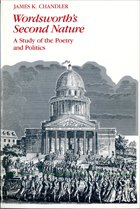
Central to the discussion, which restores Wordsworth to both the French and English contexts in which he matured, is a consideration of his relation to Rousseau and Burke. Chandler maintains that by the time Wordsworth set forth his "program for poetry" in 1798, he had turned away from the Rousseauist idea of nature that had informed his early republican writings. He had already become a poet of what Burke called "second nature"–human nature cultivated by custom, habit, and tradition–and an opponent of the quest for first principles that his friend Coleridge could not forsake. In his analysis of the poetry, Chandler suggests that even Wordsworth's most apparently private moments, the lyrical "spots of time," ideologically embodied the uncalculated habits of an oral narrative discipline and a native English mind.
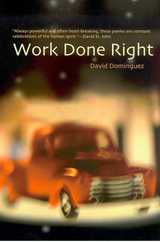
I pulled into Galdini Sausage at noon.
The workers walked out of production
and swatted away the flies desperate for pork.
Pork gripped the men and was everywhere,
in the form of blood, in the form of fat,
and in pink meat that stuck to the workers' shoes.
Work Done Right is a sequence of narrative poems, told with a lyricist's tenderness and an eye for detail, that address the human condition in unexpected ways. David Dominguez explores Abraham's struggle to maintain personal dignity in harsh circumstances, juxtaposing bleak images of the sausage factory with the hope of finding one's true place in the world. Through his sensuously textured words, he pays tribute to people and place as he takes readers on a mystic journey toward redemption.

anthology of poems captures the drama of work and working-class life in
industrial America. It speaks of rolling mills, mine shafts, and foundries,
and of a people who dig coal, tap blast furnaces, sew shirts, clean fish,
and assemble cars. These subjects, though largely absent from literary
anthologies and textbooks, are increasingly evident in the work of contemporary
poets. Working Classics gathers the best and most representative
of these poems, American and Canadian, from 1945 to the present.
Included are poems by Antler, Robert Bly, Lorna Dee Cervantes, Jim Daniels,
Patricia Dobler, Stephen Dunn, Tess Gallagher, Edward Hirsch, David Ignatow,
June Jordan, Lawrence Joseph, Philip Levine, Chris Llewellyn, Joyce Carol
Oates, Anthony Petrosky, Michael Ryan, Gary Soto, Tom Wayman, James Wright,
and many others. The result is a diverse and evocative collection of 169
poems by 74 poets, nearly a third of them women.
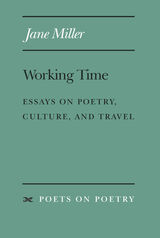
The essays consider notions of time, duration, narrative, documentary, and history in American poetry, and view poetry in the light of developments in feminism, postmodern theory, and contemporary poetic practice. In addition to poetry, Miller investigates a range of cultural products and art forms, including film, video, photography, painting, sculpture, music, and the Madonna phenomenon.
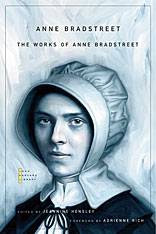

Anne Bradstreet, the first true poet in the American colonies, wrote at a time and in a place where any literary creation was rare and difficult and that of a woman more unusual still. Born in England and brought up in the household of the Earl of Lincoln where her father, Thomas Dudley, was steward, Anne Bradstreet sailed to Massachusetts Bay in 1630, shortly after her marriage at sixteen to Simon Bradstreet. For the next forty years she lived in the New England wilderness, raising a family of eight, combating sickness and hardship, and writing the verse that made her, as the poet Adrienne Rich says in her Foreword to this edition, "the first non-didactic American poet, the first to give an embodiment to American nature, the first in whom personal intention appears to precede Puritan dogma as an impulse to verse."
All Anne Bradstreet's extant poetry and prose is published here with modernized spelling and punctuation. This volume reproduces the second edition of Several Poems, brought out in Boston in 1678, as well as the contents of a manuscript first printed in 1857. Adrienne Rich's Foreword offers a sensitive and illuminating critique of Anne Bradstreet both as a person and as a writer, and the Introduction, scholarly notes, and appendices by Jeannine Hensley make this an authoritative edition.
Adrienne Rich observes, "Intellectual intensity among women gave cause for uneasiness" at this period--a fact borne out by the lines in the Prologue to the early poems: "I am obnoxious to each carping tongue/ Who says my hand a needle better fits." The broad scope of Anne Bradstreet's own learning and reading is most evident in the literary and historical allusions of The Tenth Muse, the first edition of her poems, published in London in 1650. Her later verse and her prose meditations strike a more personal note, however, and reveal both a passionate religious sense and a depth of feeling for her husband, her children, the fears and disappointments she constantly faced, and the consoling power of nature. Imbued with a Puritan striving to turn all events to the glory of God, these writings bear the mark of a woman of strong spirit, charm, delicacy, and wit: in their intimate and meditative quality Anne Bradstreet is established as a poet of sensibility and permanent stature.
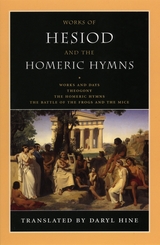
In Works of Hesiod and the Homeric Hymns, highly acclaimed poet and translator Daryl Hine brings to life the words of Hesiod and the world of Archaic Greece. While most available versions of these early Greek writings are rendered in prose, Hine's illuminating translations represent these early classics as they originally appeared, in verse. Since prose was not invented as a literary medium until well after Hesiod's time, presenting these works as poems more closely approximates not only the mechanics but also the melody of the originals.
This volume includes Hesiod's Works and Days and Theogony, two of the oldest non-Homeric poems to survive from antiquity. Works and Days is in part a farmer's almanac—filled with cautionary tales and advice for managing harvests and maintaining a good work ethic—and Theogony is the earliest comprehensive account of classical mythology—including the names and genealogies of the gods (and giants and monsters) of Olympus, the sea, and the underworld. Hine brings out Hesiod's unmistakable personality; Hesiod's tales of his escapades and his gritty and persuasive voice not only give us a sense of the author's own character but also offer up a rare glimpse of the everyday life of ordinary people in the eighth century BCE.
In contrast, the Homeric Hymns are more distant in that they depict aristocratic life in a polished tone that reveals nothing of the narrators' personalities. These hymns (so named because they address the deities in short invocations at the beginning and end of each) are some of the earliest examples of epyllia, or short stories in the epic manner in Greek.
This volume unites Hine's skillful translations of the Works of Hesiod and the Homeric Hymns—along with Hine's rendering of the mock-Homeric epic The Battle of the Frogs and the Mice—in a stunning pairing of these masterful classics.
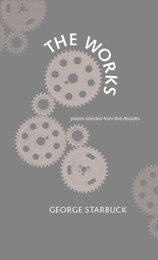
Eighty-one poems spanning the career of the late George Starbuck, widely praised luminary of modern American verse.
Starbuck was known in his lifetime and is remembered today as a practitioner of verse remarkable for its pathos, intelligence, and wit. A master of American vernacular, sensitive to the rhythms of everyday speech, Starbuck was also a brilliant lyricist, at once erudite and irreverent. He addressed some of the most profound issues of his day with a playful ingenuity and a virtuosity of talent that Glyn Maxwell, poetry editor of the New Republic, writing in The Oxford Companion to Twentieth Century Poetry, calls a "veritable arsenal of strategies against the darkness."
Starbuck came to wide critical notice in 1960 with the publication of his first book, Bone Thoughts, which won the Yale Series of Younger Poets prize. He published work regularly in the New Yorker and other major literary journals in the United States. His work was consistently recognized with awards, among them the Prix de Rome, an Ingram-Merrill Fellowship, a Rockefeller Foundation Fellowship, the Beth Hokin Prize, a Notable Book of the Year designation from the New York Times, the Lenore Marshall poetry prize, and an Aiken-Taylor Lifetime Achievement Award.
Grouped together by decades, the poems reveal Starbuck's developing genius. His technical agility and his singular voice are evident. As Anthony Hecht declares in his foreword, "I come to this posthumous collection with serene and justified confidence in finding enormous pleasure, astonishment, admiration, and genuine satisfaction. [This book] is a generous sampling of a profound poetic legacy, one for which readers ought to be deeply grateful."
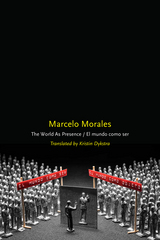
Marcelo Morales was born in Cuba in 1977. He is an established, prize-winning writer, yet he is younger in comparison to most of the Cuban poets known internationally, many of whom were born prior to the 1959 revolution. While older generations of Cuban poets have wrestled in their work with social and political critique, those critiques have often been articulated through formal experimentation and abstraction, unsurprising given the censorship and the real threats of punishment that dissident writers have faced. Morales, however, directly interrogates both the Cuban past and present. References to many significant moments, people, and issues in Cuban history and culture can be found throughout his work.
Along with references to the activist group “The White Ladies,” the 1976 bombing of Cuban Airlines Flight 455, and the military aid that Cubans provided to Angola during its fight for independence, Morales’s poetry follows a timeline ranging from Martí to Guevara to the day of the 2014 announcement by Obama and Castro that diplomatic relations between the two nations would finally be restored. As Cuba experiences a series of historically remarkable transitions, Morales emerges from this context to offer an incisive poetic account of this critical moment in Cuban, as well as world, history.
The World as Presence/El mundo como ser is both the debut of this work in any language and the first English translation of a complete Morales collection. Given the bilingual format, this book will be of interest both to English and Spanish readers.
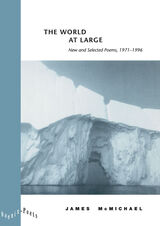
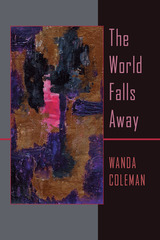
The burnings from which Coleman culls her work casts a glow and unique warmth that invites the reader to sit by her metaphorical hearth, to laugh and enjoy their “conversation.” The contemplative and philosophical have entered her voice as she continues to explore the conflicts and confusions that shape the aesthetic terrain of Southern California and beyond—as she continues to grapple with cultural bias, malignant domestic neglect, poverty, and the damages of racism, yet broadening her palette of social ills to include the privacies of grief, loss and transcendence. A nominee and finalist for Poet Laureate of California, she continues to reflect the ethnic scramble of Los Angeles, where she has been honored by proclamations from the city’s elected officials, including the mayor’s office, the city council and the Department of Cultural Affairs.

The World Is Round, Nikky Finney’s third volume of poetry, collects the wisps of memory we carry with us throughout our earthly lives and weaves them into deft and nuanced poems that emphasize understanding the cycles of life. The settings offer a view into the kaleidoscope of human experience: the sweetness and shock of family life, the omnipresent wash of memory, and the ebullience of warm Southern air. The World Is Round carries with it an implicit challenge—to the author as a poet, and to the reader as a fellow human—to see the characters and details and events of our lives with clarity, fearlessness, and love. The result is poems that range the gamut of human reach and resilience, fury and frailty. The poet’s vision of community requires understanding and tolerance from every breathing soul. Finney illuminates the cruelties of the sometimes gawking, narrow-minded world and makes a plea for compassion inspired by our common humanity.
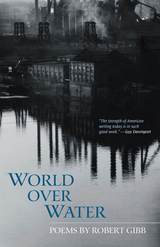
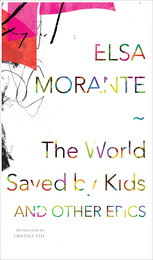
First published in Italian in 1968, The World Saved by Kids was written in the aftermath of deep personal change and in the context of what Elsa Morante called the “great youth movement exploding against the funereal machinations of the organized contemporary world.” Morante believed that it was only the youth who could truly hear her revolutionary call. With the fiftieth anniversary of the tumultuous events of 1968 approaching, there couldn’t be a more timely moment for this first English translation of Morante’s work to appear.
Greeted by Antonio Porta as one of the most important books of its decade, The World Saved by Kids showcases Morante’s true mastery of tone, rhythm, and imagery as she works elegy, parody, storytelling, song, and more into an act of linguistic magic through which Gramsci and Rimbaud, Christ and Antigone, Mozart and Simone Weil, and a host of other figures join the sassy, vulnerable neighborhood kids in a renewal of the word’s timeless, revolutionary power to explore and celebrate life’s insoluble paradox.
Morante gained international recognition and critical acclaim for her novels History, Arturo’s Island, and Aracoeli, and The World Saved By Kids may be her best book and the one that most closely represents her spirit.
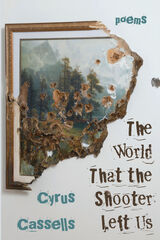
In the aftermath of the Stand Your Ground killing of his close friend’s father, poet Cassells explores, in his most fearless book to date, the brutality, bigotry, and betrayal at the heart of current America. Taking his cue from the Civil Rights and Vietnam War era poets and songwriters who inspired him in his youth, Cassells presents The World That the Shooter Left Us, a frank, bulletin-fierce indictment of unraveling democracy in an embattled America, in a world still haunted by slavery, by Guernica, Hiroshima, and the Holocaust, by climate catastrophe, by countless battles, borders, and broken promises—adding new grit, fire, and luster to his forty-year career as a dedicated and vital American poet.
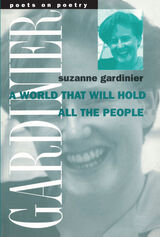
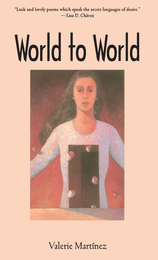
Martínez explores the dynamic of creation/dissolution in original and intriguing ways. Here are the strange and provocative landscapes of the body and its disappearance . . . of matter and the absence of matter . . . of what is formed and what is falling from form. Throughout this compelling cycle, her deft manipulations of poetic structure disclose the boundaries where flesh, matter, and language become spirit, space, and "cataractical brilliance."
In charting the relationships between time, form, body, language, and emptiness, World to World maps the territories where the visible and the invisible meet, offering unexpected discoveries for discerning readers.
READERS
Browse our collection.
PUBLISHERS
See BiblioVault's publisher services.
STUDENT SERVICES
Files for college accessibility offices.
UChicago Accessibility Resources
home | accessibility | search | about | contact us
BiblioVault ® 2001 - 2024
The University of Chicago Press









